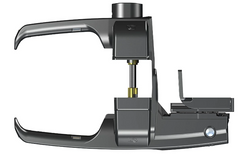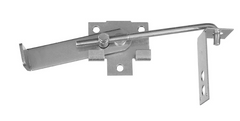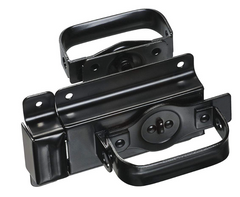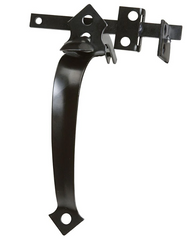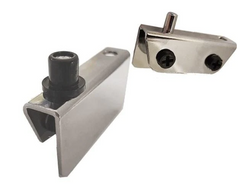The correct door latch is pivotal for securing a space, providing privacy, enhancing security, or ease of access. However, with various latches to choose from, it's difficult to determine which latch is best suited for your needs. Below, we explore eight door latch types, why they are worth purchasing, and their optimal uses to support your search for the ideal latch type.
Top 8 Door Latch Types
1. Magnetic Latch
As the name suggests, magnetic latches are equipped with a magnet to ensure a door remains shut, commonly gracing kitchen cabinets, bathroom vanities, pool gates, and interior doors where a subtle latch is preferred. They boast a streamlined appearance and simplicity in handling.
Why use them?
- Aesthetics: Offers a clean and modern look without visible hardware.
- Convenience: Easy to open and close, ideal for kitchens and bathrooms.
- Noise Reduction: Closes quietly compared to traditional latches.
2. Jamb Door Latch
Jamb door latches are integrated into the door frame, making them less visible than other types of latches and providing moderate security. They are often used for interior doors in homes and offices where aesthetics are as important as functionality.
Why use them?
- Aesthetics: Minimal visibility maintains door design.
- Functionality: Good for doors that need to stay closed without a bulky latch mechanism.
- Installation: This can be easily fitted into existing door frames.
3. Deadbolt Latch
Deadbolt latches provide unparalleled security for external entryways. They are available in both single-cylinder and double-cylinder variants to meet a wide range of security needs, and are particularly suited for main entry points as a defense against intruders.
Why use them?
- Security: High-level protection against unauthorized entry.
- Durability: Strong materials resist force and tampering.
- Options: Choice between single and double cylinders to match security needs.
4. Swinging Door Latch
Swinging door latches are designed for doors that swing in one or both directions. They are typically used in commercial settings, like restaurants and cafes, although they are also useful in homes with saloon-style doors or gates.
Why use them?
- Versatility: Suitable for doors that swing in either direction.
- Security: Offers a secure closure while allowing easy access.
- Durability: Built to withstand frequent use.
5. Sliding Bolt Latch
Sliding bolt latches are straightforward and robust. They can be enhanced with a padlock for additional security, making them useful for gates, sheds, and external doors where simple, effective security is needed.
Why use them?
- Ease of Use: Simple mechanism that’s quick to lock and unlock.
- Flexibility: Suitable for different door materials and styles.
- Security: Can be used with a padlock for added protection.
6. Pocket Door Latch
Tailored for retractable doors that vanish into adjacent walls, pocket door latches present an elegant, space-efficient locking mechanism while ensuring satisfactory protection for interior rooms. These latches are ideal for small spaces, tight hallways, and ensuites.
Why use them?
- Space Efficiency: Beneficial for tight spaces where swinging doors are impractical.
- Aesthetics: Offers a clean, flush look to complement modern interiors.
- Privacy: Provides enough security for bedrooms and bathrooms.
7. In-swinging Thumb Latch
In-swinging thumb latches are a traditional style, often used on garden gates, older doors, or where a traditional aesthetic is desired. The latch is lifted by a thumb press, allowing the door to swing inward.
Why use them?
- Historical Appeal: Adds a classic, rustic look to doors.
- Functionality: Easy to use with one hand.
- Installation: Can be mounted on a variety of door materials.
8. Self-Latching Bolt
Self-latching bolts automatically secure the door once closed, adding convenience and security. This type is beneficial for pool gates and other areas where doors must remain closed and secured at all times.
Why use them?
- Safety: Automatically ensures doors are closed and latched.
- Convenience: No need to manually check if the door is locked.
- Compliance: Often meets safety regulations for pools and childcare areas.













































































